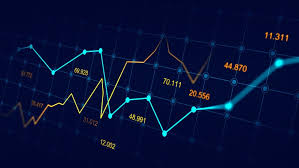
Forex trading has gained immense popularity over the years, attracting traders from all walks of life. Yet, within the Muslim community, a pressing question arises: forex trading halal or haram https://trading-terminal.com/ This article endeavors to explore the principles of Islamic finance to provide clarity on this intriguing subject.
Understanding Forex Trading
Forex, or foreign exchange trading, involves the buying and selling of currency pairs with the aim of generating profits. The forex market operates 24 hours a day and is one of the largest financial markets in the world, with trillions of dollars traded every day. Traders speculate on the price movements of currency pairs, aiming to purchase currencies at a lower price and sell them when prices increase.
The Foundations of Islamic Finance
In order to determine whether forex trading aligns with Islamic principles, one must first understand the foundations of Islamic finance. Islamic finance is governed by Shariah law, which prohibits activities that involve excessive uncertainty (gharar) and gambling (maysir). Additionally, earning interest (riba) is strictly forbidden in Islamic finance.
Key Concepts in Islamic Finance
1. Gharar: Gharar refers to excessive uncertainty or ambiguity in a transaction. In trading, high volatility and unpredictability can raise concerns regarding gharar.
2. Maysir: Maysir encompasses any form of gambling or betting. Transactions viewed as purely speculative may fall into this category.
3. Riba: Riba is any guaranteed interest on loaned money. In forex trading, the concept of swap, or rollover interest, becomes relevant.
Is Forex Trading Halal?
To determine whether forex trading is halal (permissible) or haram (forbidden), one must analyze how trading is conducted:
– Trading that does not involve the payment or receipt of interest is typically considered halal. Many forex brokers offer Islamic accounts, which do not include swaps.
– Transactions that are settled on the spot (within two days) and do not involve excessive speculation may also be permissible.
– Traders should avoid practices that resemble gambling and ensure that their trading approach is based on sound principles of investment.
Is Forex Trading Haram?

Conversely, there are scenarios in which forex trading can be deemed haram:
– If a trader engages in speculative practices that resemble gambling and focuses solely on profit without real investment, such actions may be considered haram.
– If the trading involves interest payments (swaps) that are not mitigated through Islamic accounts, this could render the trading practice haram.
– Engaging with unregulated brokers or platforms that do not adhere to Shariah principles may also lead to issues regarding the halal status of forex trading.
Avoiding Harum Practices in Forex Trading
To navigate the forex market while adhering to Islamic principles, traders can follow some guidelines:
1. Choose Islamic Accounts: Opt for brokers that offer Islamic accounts, which do not feature swaps or interest.
2. Educate Yourself: Understanding market dynamics and avoiding speculative trades will lower the risk of engaging in haram practices.
3. Seek Shariah Guidance: Consult with knowledgeable Islamic scholars regarding specific trading strategies to ensure compliance with Islamic law.
Opinions of Scholars
Islamic scholars are divided on the issue of forex trading. Some argue that it is permissible under certain conditions, while others discourage participation due to potential risks and ethical implications. Here are some perspectives:
– Some scholars assert that forex trading can be halal if it adheres to Shariah laws and limits speculation.
– Others emphasize the dangers of engaging in trading that can resemble gambling, often leading to financial loss and negative social impacts.
Conclusion
Ultimately, the question of whether forex trading is halal or haram is complex and subjective, depending on the methods employed by the trader and the adherence to Islamic principles. Traders should take caution, engage in ethical practices, and seek Shariah-compliant platforms to ensure their trading activities align with their faith.
As the financial landscape continues to evolve, Muslims participating in forex trading should remain vigilant and informed, considering both the financial and spiritual implications of their trading activities.